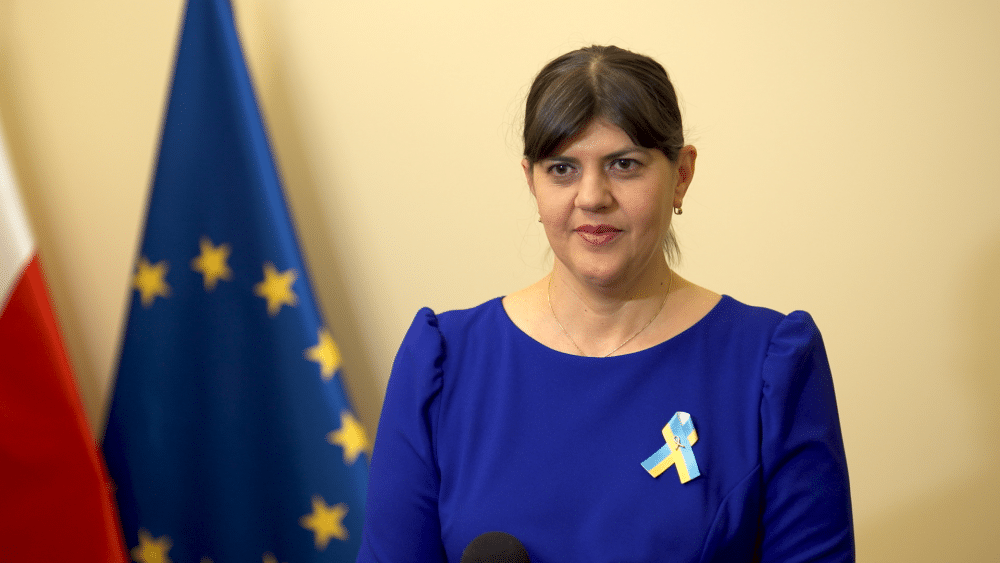“We are very pleased with Poland’s decision to join the European Public Prosecutor’s Office (EPPO), as it means expanding our sphere of action. For Polish citizens, it means that Poland will become stronger and safer. Accession to the EPPO will better protect the money and safety of Polish people,” says Laura Codruța Kövesi, European Chief Prosecutor, who met this week with the Minister of Justice, Professor Adam Bodnar. Poland is still waiting for the European Commission’s response on joining the EPPO, but preparations for this step are ongoing. There will be 24 prosecutors working for the EPPO in Poland, cooperating with the Police and tax services, who will have the same powers as national prosecutors.
Adam Bodnar submitted a request to Prime Minister Donald Tusk about Poland’s accession to the EPPO on his first day in office, on December 13 last year. Subsequently, the Prime Minister, after obtaining the agreement of the Council of Ministers and the opinions of parliamentary commissions, sent a request on this matter to the European Commission. The Minister of Justice and the Prosecutor General informed that, awaiting her response, Poland is taking preparatory actions to become a part of the EPPO as soon as possible.
“We have reached an agreement with the Minister of Justice on the appointment of 24 delegated European prosecutors, who will operate in four offices in Poland. The Polish government also must pass a law that includes the provisions of the regulation on the EPPO in national legislation,” explains Laura Codruța Kövesi in an interview with the Newseria Biznes agency. “It is worth emphasizing that the EPPO is not a foreign institution. The delegated European prosecutors – selected from Polish prosecutors – will hold office in the country and their powers will be the same as those of national prosecutors. They will apply the Penal Code, the Code of Criminal Procedure and all other national provisions. They will act in Polish courts, before Polish judges. Polish citizens who report a crime to the EPPO, will be able to contact the institution in Polish. We are not a foreign institution, we are part of the national system and act in the interest of Polish citizens.”
The European Public Prosecutor’s Office has been operating since mid-2021 and is based in Luxembourg. Currently, 22 out of 27 EU member states belong to it. In the opinion of the European Chief Prosecutor, the accession of Poland will strengthen the operation of the European Public Prosecutor’s Office, which will allow, among other things, to better protect the financial interests of the EU and its residents. During Monday’s conference, Minister Adam Bodnar pointed out that joining the EPPO is also important for the Polish prosecution, and Sweden and Ireland are also considered joining its structures.
“The main goal of the European Public Prosecutor’s Office is to conduct investigations into frauds involving EU funds and VAT frauds, if the damages resulting from such fraud exceed 10 million euros, as well as combating money laundering, corruption and organized crime. Since we operate as one office in 22 member states, we can better protect the money of citizens and ensure their safety,” emphasizes the European Chief Prosecutor. “In the future, we also hope to gain competence in conducting proceedings related to the evasion of EU sanctions, which means that we will contribute to greater security in Europe.”
At the moment, the European Public Prosecutor’s Office is conducting over 2,000 cases of this type. It launches preparatory proceedings, brings charges and acts as a public prosecutor before the courts of EU member states.
“Just in the past year, the value of damages in the cases considered by the EPPO amounted to over 12 billion euros,” says Laura Codruța Kövesi. “To give an example of the kind of cases we deal with, let me mention a carousel fraud related to VAT. The case started in Portugal as a simple case of tax fraud and involved a company with revenues of around 200 million euros. Because of the fact that no damage was done to the Portuguese authorities, the local national prosecutor’s office did not launch an investigation. However, the case was passed on to the EPPO because the tax authorities noticed connections with companies from other EU member states. The investigation lasted a year and a half, as a result of which we connected the facts and determined that around 9,000 companies and 600 individuals were involved in total, and the resulting damage was 2.2 billion euros. Five organized crime groups involved in the crime were operating in all member states of the European Union and in 10 countries outside the EU.”
